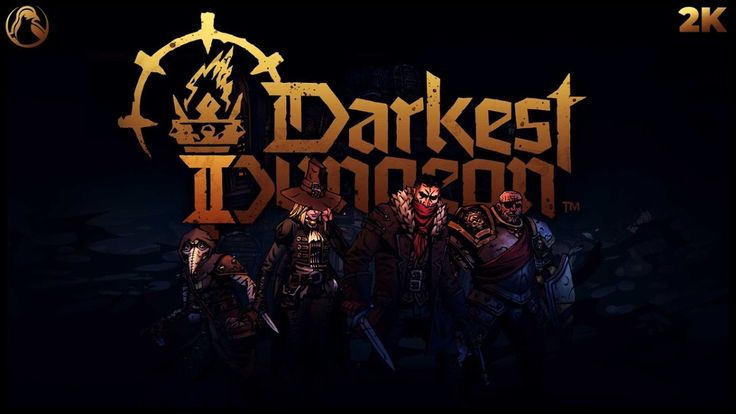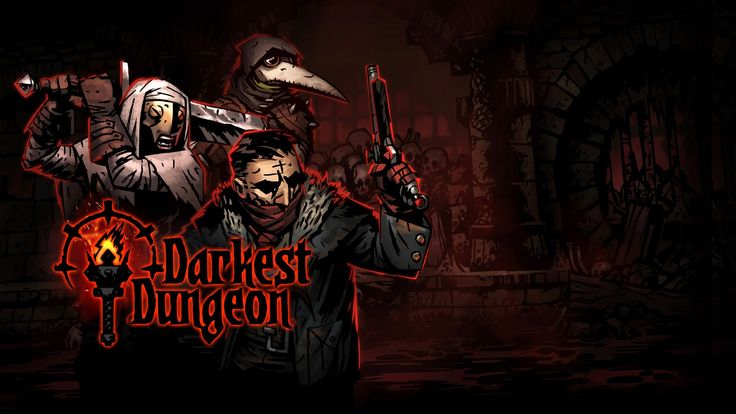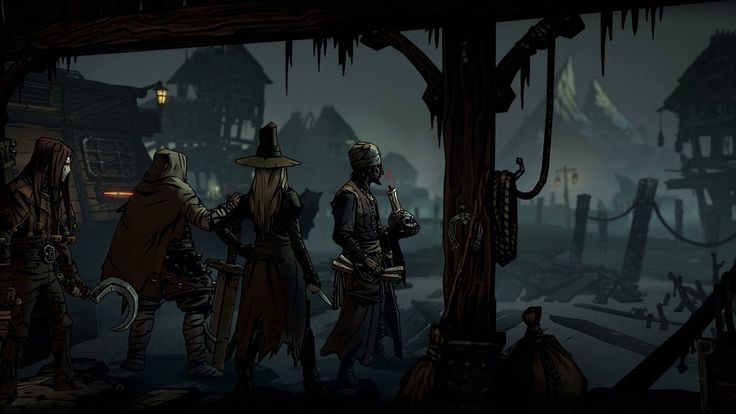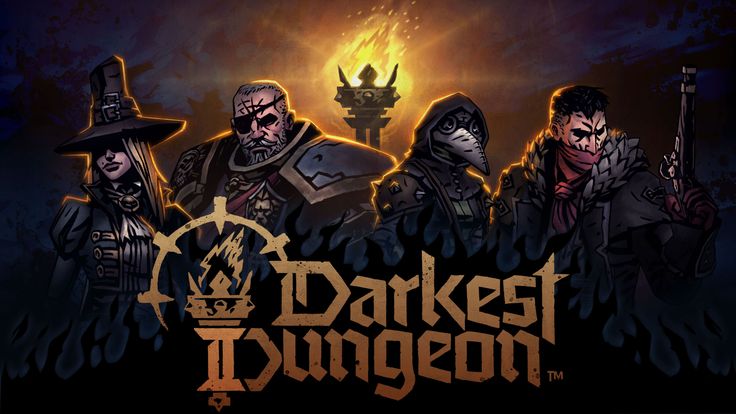“Darkest Dungeon 2” (DD2) is a challenging, roguelike, turn-based RPG that tests the limits of strategy and resource management. One of the core themes in the game is dealing with ambition and its consequences, epitomized by the concept of “short-sighted ambition.” This article delves into the nuances of short-sighted ambition in DD2, exploring its impact on gameplay, character development, and long-term success. We will break down strategies to manage ambition effectively and provide insights into the game’s mechanics to help you achieve victory in the darkest of dungeons.
Introduction to Darkest Dungeon 2
“Darkest Dungeon 2” continues the legacy of its predecessor, immersing players in a grim, gothic world filled with horrors and despair. The game focuses on leading a group of flawed heroes through treacherous environments while battling grotesque creatures and managing the ever-present threat of stress and madness. Ambition plays a significant role in the game’s narrative and mechanics, influencing decisions and shaping the fate of your heroes.
Understanding Short-Sighted Ambition
Short-sighted ambition in DD2 refers to the tendency to prioritize immediate gains or success at the expense of long-term stability and growth. This ambition can manifest in various ways, such as pushing your heroes beyond their limits, neglecting their mental health, or making risky decisions for short-term rewards. While ambition is necessary to drive progress, unchecked short-sighted ambition can lead to disastrous consequences.

The Impact of Short-Sighted Ambition
1. Hero Stress and Madness
One of the most direct impacts of short-sighted ambition is on the stress levels of your heroes. Pushing them too hard without adequate rest and care can result in elevated stress, which, if left unmanaged, can lead to negative afflictions and, ultimately, madness. This can severely hinder their performance in combat and exploration.
2. Resource Management
Ambition often drives players to exhaust their resources quickly, whether it’s gold, provisions, or hero health. Poor resource management can leave your party ill-prepared for future challenges, increasing the likelihood of failure and loss.
3. Party Composition and Synergy
Making hasty decisions based on short-term goals can disrupt the balance and synergy of your party. This can result in a less effective team, making it harder to tackle more difficult encounters as you progress through the game.
4. Long-Term Progress
While short-sighted ambition may yield immediate rewards, it often hampers long-term progress. Sustainable success in DD2 requires careful planning and consideration of future challenges. Neglecting this can lead to a weakened party and a stalled campaign.
Strategies to Manage Ambition Effectively
1. Prioritize Mental Health
A. Stress Management
- Regularly monitor the stress levels of your heroes and take proactive measures to reduce it.
- Utilize in-game mechanics such as camping, stress-relief activities, and stress-reducing trinkets.
B. Affliction Prevention
- Pay attention to the affliction mechanics and take steps to prevent heroes from reaching critical stress levels.
- Remove afflicted heroes from the frontline and provide them with necessary treatments.
2. Balanced Resource Allocation
A. Provisions and Supplies
- Allocate resources wisely to ensure your party is well-equipped for each expedition.
- Avoid overstocking or understocking provisions to maintain a healthy balance.
B. Gold and Trinket Management
- Invest in essential upgrades and equipment while keeping a reserve for emergencies.
- Equip your heroes with trinkets that enhance their strengths and mitigate their weaknesses.
3. Thoughtful Party Composition
A. Synergy and Balance
- Build a party with complementary skills and abilities to maximize effectiveness in combat.
- Consider the strengths and weaknesses of each hero and how they interact with each other.
B. Versatility
- Prepare for various scenarios by including heroes with diverse skill sets in your roster.
- Avoid relying too heavily on a single strategy or party composition.
4. Long-Term Planning
A. Progression Goals
- Set clear, achievable goals for your campaign and work towards them systematically.
- Prioritize upgrades and objectives that provide long-term benefits.
B. Risk Assessment
- Evaluate the risks and rewards of each decision carefully to avoid unnecessary losses.
- Be willing to retreat and regroup if the situation becomes too dire.

Character Development and Ambition
1. Hero Traits and Quirks
A. Positive Traits
- Nurture positive traits and quirks that enhance your heroes’ abilities and resilience.
- Use the sanitarium to reinforce beneficial quirks and remove detrimental ones.
B. Negative Traits
- Address negative traits that hinder your heroes’ performance as soon as possible.
- Balance the impact of these traits by strategically managing your party.
2. Leveling and Skill Progression
A. Skill Upgrades
- Invest in skill upgrades that align with your long-term strategy and playstyle.
- Focus on enhancing core abilities that are crucial for your heroes’ roles in the party.
B. Hero Classes
- Understand the strengths and weaknesses of each hero class and how they contribute to your party.
- Develop a diverse roster of heroes to adapt to different challenges.
3. Equipment and Trinkets
A. Gear Upgrades
- Prioritize upgrading your heroes’ gear to improve their survivability and effectiveness.
- Balance offensive and defensive upgrades to maintain a well-rounded party.
B. Trinket Selection
- Equip your heroes with trinkets that complement their abilities and playstyle.
- Rotate trinkets based on the specific needs of each expedition.

Case Studies: Ambition Gone Wrong
1. Overextending in Expeditions
A common pitfall in DD2 is overextending during expeditions. This can occur when players push their party to explore one more room or fight one more battle despite high stress levels and depleted resources. The consequences can be catastrophic, leading to hero deaths, afflictions, and failed missions.
Example: A party with high stress levels decides to explore an additional room for extra loot. They encounter a tough enemy group, resulting in a devastating defeat. The surviving heroes return to the hamlet with severe afflictions, and the loot gained is insufficient to cover the losses.
2. Neglecting Hero Mental Health
Focusing solely on completing missions without addressing the mental health of your heroes can lead to a downward spiral of stress and afflictions. This short-sighted ambition can result in a weakened party that struggles to perform effectively in subsequent missions.
Example: A player repeatedly sends the same heroes on missions without allowing them to rest and recover. Over time, their stress levels increase, and they develop multiple afflictions. The afflicted heroes perform poorly in combat, causing the party to fail missions and incur further stress and injuries.
Advanced Strategies for Long-Term Success
1. Efficient Time Management
A. Mission Planning
- Plan your missions carefully to maximize efficiency and minimize risk.
- Prioritize objectives that align with your long-term goals and provide valuable rewards.
B. Downtime Activities
- Utilize downtime between missions to manage stress, upgrade facilities, and treat afflictions.
- Ensure your heroes are well-rested and prepared for upcoming challenges.
2. Adaptive Strategies
A. Flexibility
- Be adaptable in your approach and willing to change strategies based on the situation.
- Experiment with different party compositions and tactics to find what works best for each scenario.
B. Contingency Plans
- Have backup plans in place for when things go wrong.
- Be prepared to retreat and regroup if a mission becomes too dangerous.
3. Community and Multiplayer Aspects
A. Learning from Others
- Engage with the DD2 community to learn from other players’ experiences and strategies.
- Share your own insights and contribute to the collective knowledge base.
B. Cooperative Play
- Explore cooperative play options to tackle challenges with other players.
- Coordinate with your teammates to develop effective strategies and overcome tough encounters.
Conclusion
Short-sighted ambition in “Darkest Dungeon 2” can lead to immediate gains but often results in long-term setbacks. By understanding the impact of ambition on hero stress, resource management, and party composition, players can develop strategies to manage ambition effectively. Prioritizing mental health, balanced resource allocation, thoughtful party composition, and long-term planning are key to achieving sustainable success in the game.
“Darkest Dungeon 2” challenges players to balance ambition with caution, pushing them to make strategic decisions that ensure the survival and prosperity of their heroes. By avoiding the pitfalls of short-sighted ambition and embracing a holistic approach to management and strategy, players can navigate the darkest dungeons and emerge victorious. Remember, in the world of DD2, patience and foresight are just as important as courage and determination.

